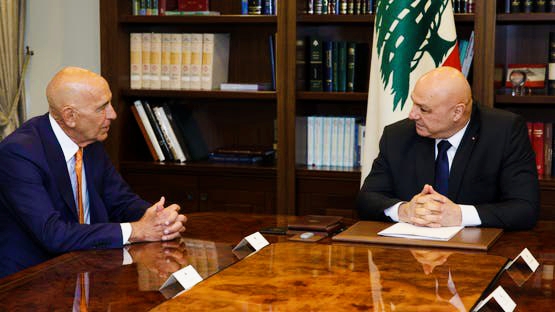This morning, Lebanese President Joseph Aoun met in Beirut with U.S. envoy Tom Brack, in a high-level meeting that included a U.S. delegation headed by Senator Jeanne Shaheen, to discuss the Israeli response to Lebanese remarks regarding the issue of disarming Hezbollah.
The meeting comes in the context of escalating international diplomatic efforts to ensure Lebanon's stability, amid fears of a potential internal explosion if weapons remain outside the state's framework.
President Aoun emphasized in a previous statement that "Lebanon of sects does not create a state," affirming that "the state is what protects all sects and preserves the homeland," in a clear reference to the importance of unifying security and military decisions under the authority of the Lebanese state alone.
For her part, U.S. Deputy Envoy to the Middle East Morgan Ortagus confirmed during her visit to Beirut that Hezbollah does not represent the Lebanese people but rather represents Iran, indicating Washington's full readiness to support the Lebanese army in developing and implementing a comprehensive plan to disarm the party.
In a special statement to This Is Beirut news site, Ortagus stressed the United States' steadfast support for the Lebanese government, emphasizing the American seriousness in helping Lebanon implement the disarmament plan, ensuring security and stability in the country.
In the same context, Lebanese Interior Minister Ahmad al-Hajjar stated: "No Lebanese wants to return to civil war," explaining that limiting weapons to the state is in the interest of all Lebanese, adding that internal security forces are ready to deal with any assaults or acts of vandalism during potential protests.
The recent U.S.-Lebanese meetings indicate a clear diplomatic escalation towards addressing the roots of the security crisis in Lebanon, amid intense international efforts to restore stability to this country facing unprecedented internal and external pressures.

